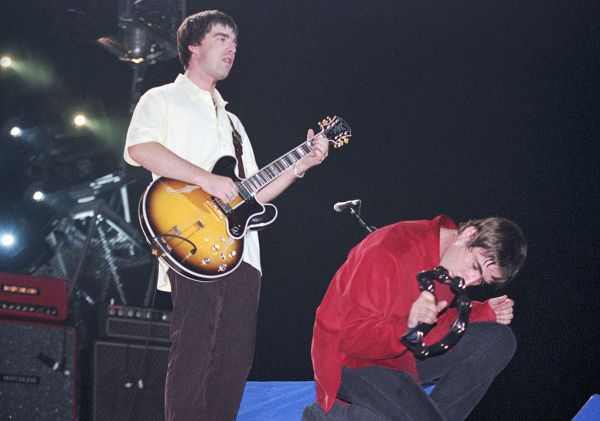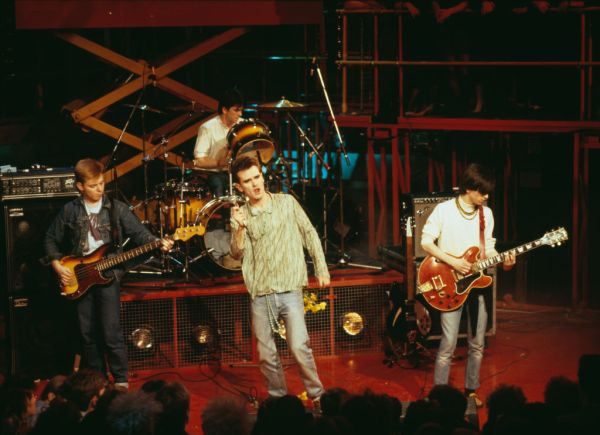For much of the 2010s, pop music seemed obsessed with the idea of “tonight.”
“Tonight, we are young.” “Give me everything tonight—we might not get tomorrow.” “Let’s make the most of the night like we’re gonna die young.” (Close enough.) Late millennial/early zoomer party anthems—they invariably included some reference to clubbing—were so common that the comedian John Mulaney poked fun at them as the decade wrapped up. (“I want to write songs for people in their 30s called, ‘Tonight’s No Good, How About Wednesday?’”)
Something has changed this decade, though. Offshoots of YOLO™ are certainly still in vogue—some say we just wrapped up Brat Summer, after all—but they don’t feel as commanding as they used to. If the facile carpe diem (carpe noctem?) pop of the 2010s recycled a fascination with hanging on to “tonight” lest youth or bottle service disappear, then pop music in the 2020s seems more captivated by the prospects of and obstacles to tomorrow.
Especially in relationships. Taylor Swift’s pandemic-era folk ballad “Willow,” for example, exalted not flushed infatuation but a more forthright intentionality. “I’m begging for you to take my hand / Wreck my plans / That’s my man,” she declared. “Please don’t be too good to be true,” added Kacey Musgraves this spring, likewise pining for permanence. Dua Lipa was even more pointed in a recent single, assuring a juvenile suitor that “training season’s over.”
But the most fascinating artist bucking the “tonight” trend might just be Sabrina Carpenter, who released Short n’ Sweet late last month. Like Swift, Musgraves, and Lipa, Carpenter has been a resounding mainstream success of late, cracking the Billboard Top 10 with a new album that’s often about female exasperation at male fickleness. Unlike them, her style is far more … um … lyrically permissive, blending a bubbly disregard for syntax with an unapologetically NSFW delivery. Yet behind the breezy presentation and sometimes gratuitous innuendos, Carpenter might just be offering the most surprising foil to carpe diem pop.
The 25-year-old singer and Disney Channel alum began her breakout summer with “Espresso,” a synth-pop single with a retro feel about her toying with a foolishly hopeful inamorato. She performed the song for the first time at this year’s Coachella music festival, and it has since become Billboard’s No.1 song of the summer. “Espresso” is a characteristically Carpenter track, which is to say it’s delightfully jaunty and syntactically carefree. (“Say you can’t sleep? Baby I know, that’s that me espresso.”)
It’s also on the cleaner end of an album that you probably shouldn’t play for grandma. Carpenter—who developed a reputation for curating euphemistic outros in live performances—tends to turn even something as suburban-placid as Mountain Dew and Nintendo into a lascivious lyric, and she does so throughout Short n’ Sweet. Shakespearean allusions and Leonard Cohen references somehow find their way into songs titled “Bed Chem” and fantasies about la petite mort. Not exactly demure!
But focusing too much on the admittedly spicy surface hides a more interesting aspect of Carpenter's album. It’s nothing new for a pop artist to indulge in romantic daydreams or sex-laden lyrics, but they’re not usually this intertwined with thematic ingenuity or musical charm.
Take the economically honest beginning of “Please, Please, Please,” her second hit single this summer, which the New York Times’ Joe Coscarelli aptly described as a “Dolly Parton-meets-Abba confection.” What could have been a straightforward account of falling for a reprobate instead relies on the irony of an unreliable narrator. “I know I have good judgment / I know I have good taste / It’s funny and it’s ironic / That only I feel that way,” Carpenter sings right off the bat. She at once plays with stream-of-consciousness narration while also revealing herself to be not just a self-assured coquette but a self-critical one too: He may be no good, but she chose him.
And there are many little musical details peppered throughout Short n’ Sweet. A pre-chorus in “Sharpest Tool” flows by using the same word at the beginning and end of a line: “We were goin’ right, then you took a left / Left me with a lot of sh-t to second-guess / Guess I’ll waste another year on wonderin’ if / If that was casual, then I’m an idiot.” “Please, Please, Please,” also features a three-semitone key change, a rarity in pop music. Even the musical layers are playful, as when Carpenter word-paints by singing “hormones are high” while literally hitting a high note.
“Behind the breezy presentation and sometimes gratuitous innuendos, Carpenter might just be offering the most surprising foil to carpe diem pop.”
But all of that could still be consistent with an obsession with “tonight.” Not so with Carpenter and her songwriting team, which includes Amy Allen—credited in every song in Short n’ Sweet—as well as Taylor Swift collaborator Jack Antonoff and One Direction producer John Ryan. Why? Because while there’s an undeniable sex-positive aura to all of Short n’ Sweet, there’s also a very open interest not just in permanence but even, of all things, in pregnancy. Explicitly so at times.
It begins briefly in “Good Graces,” the third song of the album and an homage to ’90s R&B. In it, Carpenter sings (emphasis added):
When I love you,
I’m sweet
Like an angel
Drawin’ hearts ‘round our names
And dreamin’ of
Writing vows,
Rockin’ cradles
Don’t mistake my nice for naive
And by the tail end of the album, pregnancy takes center stage in “Juno,” a song titled after the Oscar-winning 2007 film about a high-school junior who learns she’s expecting.
“Juno” begins with Carpenter-esque references to “fuzzy pink handcuffs” and … uh … genetics. But as the track progresses, it becomes clear that Carpenter isn’t merely concerned with a sexual crescendo, which leads her to a different kind of “tonight” reference—one with more fecund aspirations:
I know you want my touch for life
If you love me right, then who knows?
I might let you make me Juno
You know I just might
Let you lock me down tonight
One of me is cute, but two though?
Give it to me, baby.
You make me wanna make you fall in love.
It’s a baffling confluence of interests for a song in a chart-topping album at a time when fertility rates are dropping (among all age groups) and Gen-Z is leading a sex recession. Since neither sex nor pregnancy seems especially prevalent among Carpenter’s likely audience, a song like “Juno” can’t help but be the most culturally surprising part of Short n’ Sweet. It feels like an antithesis to the party anthem of the 2010s, not just because it conveys a preoccupation with permanence but because it gets there through a mix of eros and eternizing love. As the bridge concludes, Carpenter makes two requests and a confession: “Adore me / Hold me and explore me / I'm so f—in’” … and a word that rhymes with “corny.”
And it is undeniably corny. But it’s also kind of an unheard-of synthesis for our conversations about sex and relationships, marriage and fertility.
If references to missing clothes and “getting fixins” make you want to go smoke a cigarette, Short n’ Sweet might not be your cup of espresso. But for those looking for mainstream art and entertainment that don’t detach sex from the bonds of affection that it often brings about, Sabrina Carpenter’s latest offers an alternative to both a sterile sex-positivity and a prudish pro-natalism. She ends up suggesting—whether intentionally or not is a different matter—that the hottest thing might just be head-over-heels eros unafraid of its natural end result. The party anthems of yesteryear did not even come close to being that interesting.







Please note that we at The Dispatch hold ourselves, our work, and our commenters to a higher standard than other places on the internet. We welcome comments that foster genuine debate or discussion—including comments critical of us or our work—but responses that include ad hominem attacks on fellow Dispatch members or are intended to stoke fear and anger may be moderated.
With your membership, you only have the ability to comment on The Morning Dispatch articles. Consider upgrading to join the conversation everywhere.